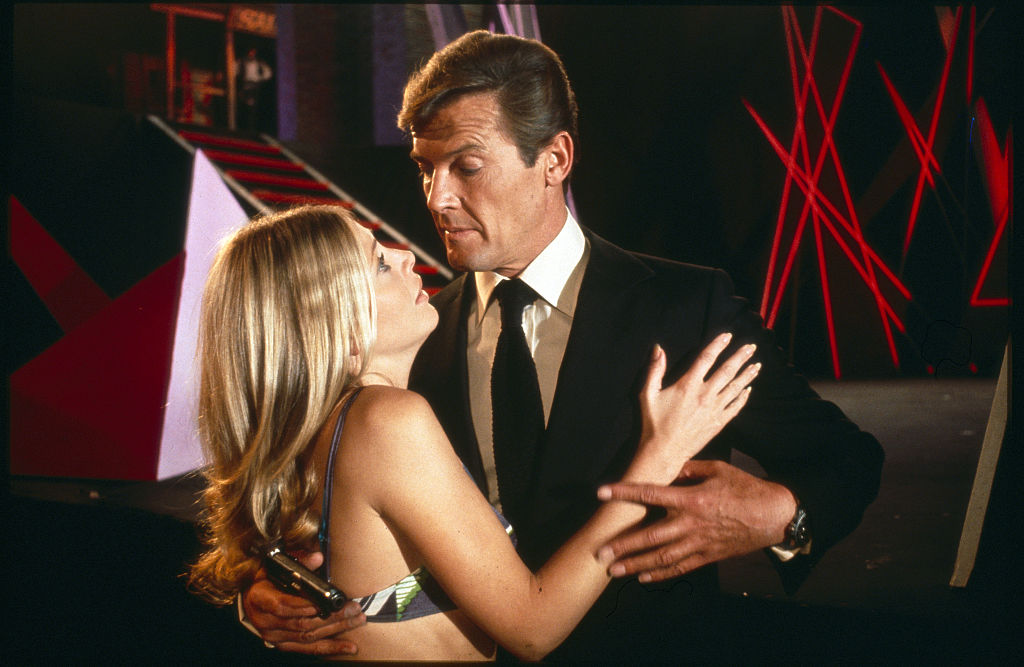When Daniel Craig’s final Bond film No Time To Die was released in 2021, Sir Keir Starmer was asked who his favourite iteration of 007 was. “I don’t have a favourite Bond,” said the Labour leader, “but I do think it’s time for a female Bond”. Thankfully, Barbara Broccoli and Michael G Wilson appear to be ignoring Starmer’s advice. According to reports, producers have earmarked not a woman to be the next Bond, but instead Aaron Taylor-Johnson — a 33-year-old, cisgendered, straight, white Englishman. Taylor-Johnson yesterday seemingly distanced himself from the casting, saying he had no wish to be part of the “pop culture studio machine”.
Nevertheless, the symbolism of his candidacy matters. Bond has long since become more than just a movie character. He is deeply embedded in the British psyche, as Craig’s skit with the late Queen during the opening ceremony of the London Olympics demonstrated. Yet for years now, many on the Left have viewed Bond’s unreconstructed masculinity as problematic. It doesn’t take Q Branch to work out why: as 007’s creator, Ian Fleming, once memorably said, he was designed as a hero for “warm-blood heterosexuals”.
In 2023, Fleming’s original novels were revised to remove racist and misogynistic language. Even diehard Bond fans will admit there are plenty of problematic examples. The Spy Who Loved Me contains the observation that “all women love to be semi-raped”; Fleming’s use of the N-word is liberal; and in Goldfinger, Bond “cures” Pussy Galore of her lesbianism. Understandably, such attitudes — and how to deal with them — have provided recurring headaches for the Fleming estate and EON, the producers of the film franchise.
The logical response to Orwellian calls for trigger warnings and retroactive censorship is normally to point out that the original source material is a product of its time. For example, when The Beatles sang “she was just seventeen, if you know what I mean”, the sexual morality of the Sixties was poles apart from 2024. The problem for Bond is that he is simultaneously a character of the past — “a sexist, misogynist dinosaur… a relic of the Cold War”, as Judi Dench’s M spits in Goldeneye — and also a modern-day cultural icon, and has remained so by moving with the times. He belongs both to a bygone era and today.
The producers have been tactful in the way they’ve allowed the character to evolve with the decades. Several of the Sean Connery films show Bond hitting women. By the Roger Moore era 007 had dropped the sexual violence but was still prone to casual racism, for example tipping an Indian waiter in Octopussy and telling him it should “keep you in curry for a few months”. By the time Craig made his debut in 2006’s Casino Royale, Bond was more chaste than chased — though not beyond reproach. A scene in 2012’s Skyfall where Bond creeps, uninvited, into the shower of a sex trafficking victim faced criticism for the issues it raised around consent.
Many commentators speculated that the controversial ending to No Time To Die (spoiler ahead) was a metaphor for Bond’s ability to survive in the modern world. Perhaps the producers decided that being blown up by a Royal Navy missile was a more dignified ending for Fleming’s creation than being killed off by cancel culture. Thankfully, the franchise’s imminent reboot suggests there’s life in the old dog yet. How refreshing it would be if Bond’s resurrection coincided with a more grown-up conversation around masculinity. At a time when young men need positive role models more than ever, 007 has a role to play once more. No one wants the misogynistic dinosaur described by Dench, but perhaps Fleming’s “warm-blooded” hero wasn’t such a bad template after all.











Join the discussion
Join like minded readers that support our journalism by becoming a paid subscriber
To join the discussion in the comments, become a paid subscriber.
Join like minded readers that support our journalism, read unlimited articles and enjoy other subscriber-only benefits.
Subscribe